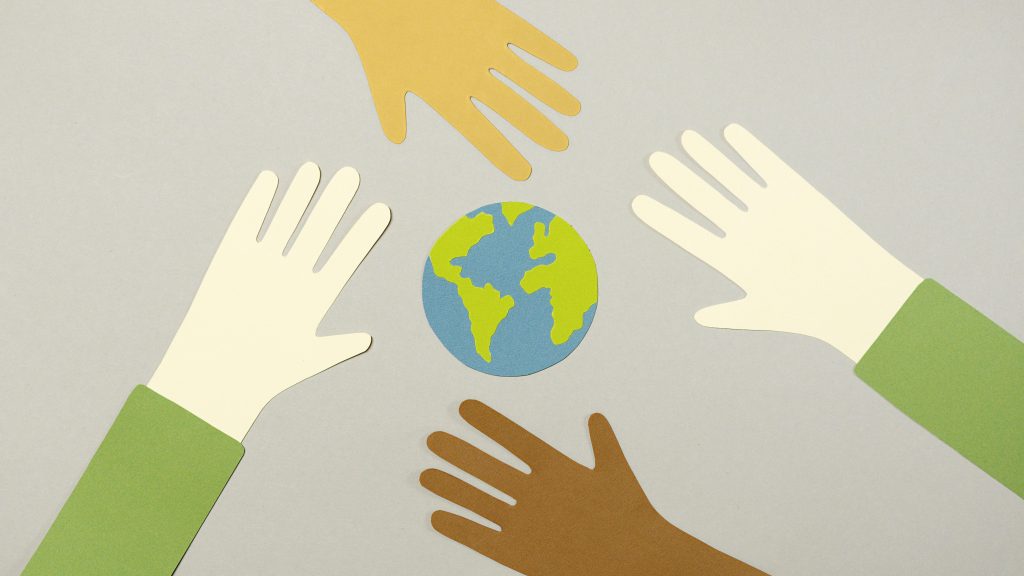
Image from Artem Podrez
There’s a lot of noise these days about Diversity, Equity, and Inclusion (DEI) being a fading trend, especially in the United States. But here in the Philippines, I see it differently. I see it in everyday interactions, in the way businesses operate, and in the very fabric of our society. DEI isn’t some corporate mandate or political buzzword—it’s about fairness, opportunity, and acknowledging the struggles of people who have historically been overlooked. I believe that now, more than ever, we need to keep talking about DEI, ensuring that it’s not just a box to check, but a movement that shapes a more just and progressive future.
The Philippines is a land of contradictions. We pride ourselves on being warm, welcoming, and family-oriented, yet systemic inequities still run deep. The reality is that gender gaps persist, economic disparities are stark, and discrimination—whether based on class, disability, or identity—is still present. Many Filipinos, particularly women, members of the LGBTQIA+ community, persons with disabilities, and those from lower-income backgrounds, still struggle to access opportunities that others take for granted. That’s why DEI is not an abstract idea here—it is a necessity.
Take gender equality, for instance. The Philippines ranks relatively high in global gender parity indices, yet leadership positions remain overwhelmingly male-dominated. Women continue to experience wage gaps and limited opportunities for career advancement. Many still have to fight for paid parental leave, flexible work arrangements, or simply the right to be taken seriously in boardrooms dominated by men. It’s not enough to celebrate the fact that we’ve made progress—there’s still so much to do.
LGBTQIA+ inclusion remains a challenge. While Filipinos are generally more accepting than some of our Southeast Asian neighbors, legal protections remain limited. There is still no national anti-discrimination law safeguarding employees from being fired, harassed, or denied promotions due to their sexual orientation or gender identity. Companies that proactively champion inclusivity—by ensuring equal benefits, fostering safe workplaces, and advocating for policy changes—aren’t just being “progressive.” They’re building environments where everyone can bring their full selves to work without fear.
Economic inequality is one of the country’s biggest roadblocks to real progress. A person’s last name, the school they went to, or even the city they were born in can determine the trajectory of their life. There are still thousands of talented, hardworking Filipinos who are overlooked simply because they don’t fit the traditional mold. This is why mentorship programs, scholarships, and inclusive hiring practices aren’t just good PR for companies—they’re lifelines for those trying to break cycles of poverty and access opportunities that should be available to all.
Persons with disabilities face yet another set of barriers. Accessibility remains an afterthought in many public and private spaces, and workplaces are often not designed to accommodate employees with disabilities. Hiring a person with a disability isn’t charity; it’s about recognizing untapped potential and removing the systemic obstacles that prevent people from contributing meaningfully to the workforce.
It’s tempting to look at the backlash against DEI in the US and assume that it’s something we should be wary of here. But the Philippine context is different. Our struggles aren’t the same. Our workplaces are shaped by different histories, cultures, and expectations. DEI in the Philippines isn’t about political correctness—it’s about making sure that businesses, institutions, and policies work for everyone, not just for those born into privilege.
I’ve seen firsthand how organizations that prioritize DEI thrive. Businesses that embrace diverse hiring practices bring in fresh perspectives and creativity. Teams that cultivate inclusive cultures experience higher engagement and morale. And beyond the business case, the social impact of DEI is immeasurable. When companies invest in employees from marginalized communities, they don’t just improve workplace culture—they uplift entire families and communities.
The key to making DEI sustainable in the Philippines is ensuring that it moves beyond compliance and becomes a core part of how we do business. This means leaders who don’t just pay lip service to inclusivity but actively push for change. It means policies that go beyond token representation and truly level the playing field. It means a shift in mindset—seeing diversity as an asset rather than an obligation.
To those who say DEI is just a passing trend, I’d argue the opposite. The work of making workplaces and society more inclusive is just getting started. And for those of us in the Philippines, we have an opportunity to shape a version of DEI that truly speaks to our needs and realities. It’s not about following the West’s example—it’s about building something that makes sense for us.
DEI is not just about the numbers or policies—it’s about people. It’s about giving everyone a fair shot, a voice, and a space where they can thrive. In a country as rich in talent and potential as the Philippines, we cannot afford to overlook anyone. DEI isn’t just a nice-to-have; it’s a must. And for those who have benefited from a system that worked in their favor, it’s time to look beyond personal success and work toward a future where opportunities aren’t reserved for a select few, but are open to all.
This article is written by Reuben James Barrete, Program Manager at PBCWE. The views and opinions expressed in this article do not reflect those of the organization or its affiliates.

